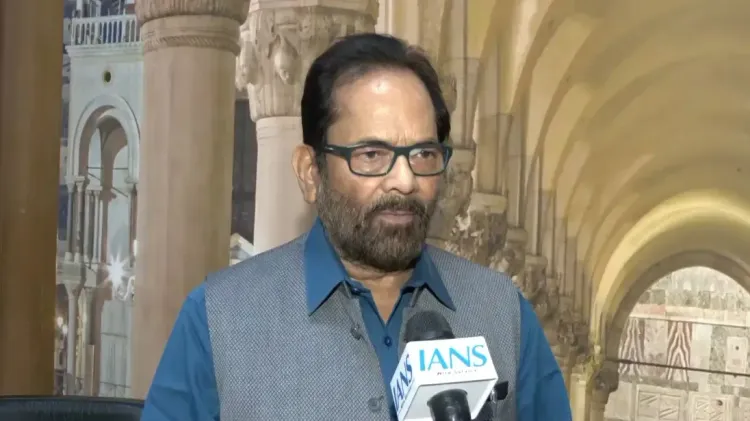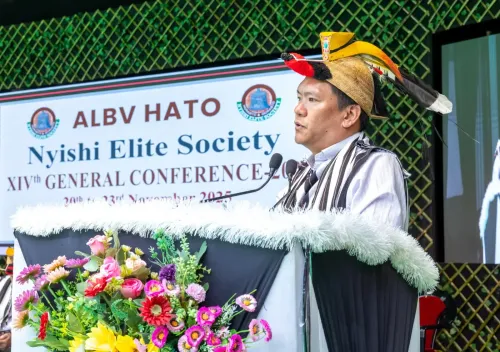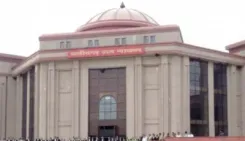BJP Critiques Mamata's Engagement with Muslim Leaders Amid Waqf Protests

Synopsis
Key Takeaways
- Mamata Banerjee met with Muslim clerics to address violence.
- BJP questions her motives and governance in West Bengal.
- Unrest in the region has led to significant migration.
- Accusations of appeasement politics against TMC government.
- ED's investigation into National Herald case involves Congress leaders.
New Delhi, April 16 (NationPress) Following a series of incidents involving arson and violence in Murshidabad related to the Waqf Act, West Bengal Chief Minister Mamata Banerjee convened a meeting with Muslim clerics, imams, and Ulemas at the Netaji Indoor Stadium. She appealed for their assistance in restoring peace, a gesture that has sparked significant backlash from the BJP.
Senior BJP figure Mukhtar Abbas Naqvi questioned the purpose of Banerjee’s engagement with these religious leaders, expressing concern over her apparent disregard for the other community that has suffered due to the unrest.
In remarks to IANS, Naqvi stated, “There is unrest in several regions, particularly in West Bengal, which is deeply troubling. It seems that the state government has capitulated to criminal and communal elements. Now, by organizing this meeting with these groups, what message is Mamata Banerjee trying to send — one of trust, or one of fear?”
Naqvi went on to claim that the state’s constitutional framework has disintegrated, citing the mass exodus of people from the troubled areas as proof of administrative failure.
“Individuals are fleeing right beneath the eyes of a constitutional government. This indicates a collapse in governance,” he added.
The Mamata administration has faced criticism for failing to address the radical and extremist elements that have instigated chaos, notably in Murshidabad, resulting in the loss of three lives. The BJP has accused the TMC government of practicing appeasement politics for electoral advantage.
Naqvi also commented on the Enforcement Directorate’s (ED) actions regarding the National Herald case, which implicates Congress leaders Sonia Gandhi and Rahul Gandhi in a chargesheet.
In response to the Congress's vehement criticism of the chargesheet, Naqvi remarked, “The Congress is attempting to depict corruption as a revolutionary act. They flaunt this act of fraud as a mark of honor, claiming victimization. However, this is not a case of political vendetta — it is an issue that has undergone thorough investigation and is backed by court directives.”
The investigative agency submitted a chargesheet against Congress leaders Sonia Gandhi and Rahul Gandhi regarding the National Herald case on Tuesday. Other Congress figures, Sam Pitroda and Suman Dubey, have also been named in the chargesheet.









